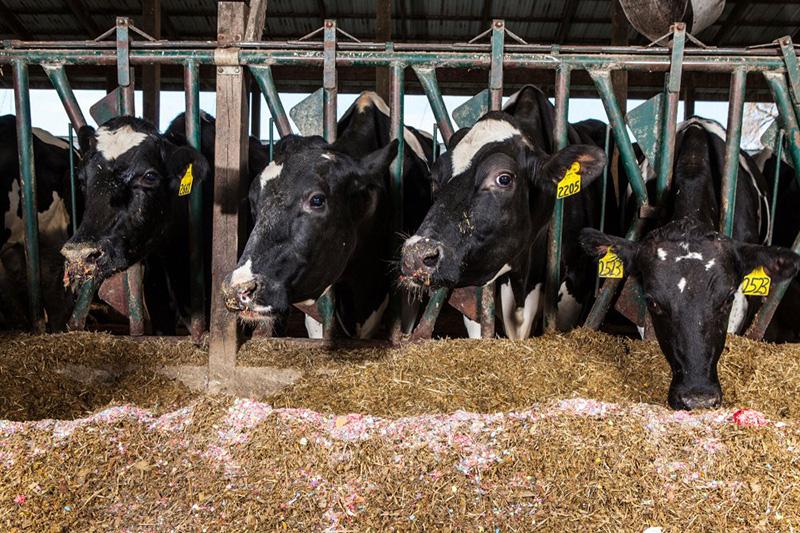“You Are What Your Food Eats”
More stories from Claudia Pehowic
The United States alone is home to 108 million dieters. Our nation’s weight loss industry has combined profits of $20 billion per year. While Americans are urged by commercials to shake chemicals on their favorite foods or endure dangerous weight loss surgery, dietetic studies from many nonprofit firms remain unheard. For many people, including those who seek to change their diet, a mist of industry-sponsored studies, claims from self-interested corporations, and focus on nutrients rather than foods causes confusion and bewilderment. Personally, I hold the belief that some foods are good for you; other foods are not. I believe that meats, especially the types of meats consumed by most Americans, fall into the latter category.
Meat in and of itself is a very natural food for humans. For thousands of years, humans survived, evolved, and thrived as a species while consuming meats from many different animals. These are arguments I hear quite often, and I agree. However, the animals that our ancestors ate regularly were very different from the animals that the food industry raises today. Because the government subsidizes corn, it is the cheapest way for many farmers to feed their cattle. Cows in the wild would never eat corn; they use their four stomach-like organs to digest meals of various types of grasses. Eating corn causes them to gain an unhealthy amount of weight as well as suffer from diseases, like bloat. According to the National Resources Defense Council, 80 % of all antibiotics sold in the United States are used by cattle and poultry. Corn feed and antibiotics may be cheap, but they are not natural.
Many food scientists have taken a new approach to the familiar adage “You are what you eat.” They say, “You are what your food eats.” Antibiotics and cheap corn meal, which is made from a different species of corn than is digested by humans, is not a healthy meal for us or for our livestock. While the meat industry saves money, Americans spend increasing amounts of money on weight loss and medical bills. British chef Jamie Oliver notes that the first, second, and fifth most prevalent causes of death (heart disease, cancer, and stroke in America are all caused by unhealthy diets. ) Oliver made this claim before the World Health Organization (WHO) made any comment about meat’s connection to cancer.
On October 26, the WHO issued a press release about red meat, processed meat, and public health. The organization claims it has “sufficient evidence” to believe that colorectal cancer is caused by processed meats. This made national news. Some people claim that everything causes cancer nowadays, but I do not believe that to be the case. Because producers of unhealthy foods band together in groups, like the Cattleman’s Association and the Sugar Lobby, it is very difficult for researchers to make claims against these foods. The WHO’s press release was courageous and brave. It was not the product of faulty or minimal research. It was the proclamation of a fact that many dieticians have known and been unable to discuss. As Time Magazine journalist Alexandra Sifferlin wrote, “The link between meats and cancer had always been hedged. But it’s growing more certain.”
Because not everything causes cancer, I opt for a diet rich in whole fruits and vegetables. While eating organic (food grown without pesticides) can be expensive, I encourage others to buy these foods at a price they can accommodate. If I was a meat eater, I would shop for grass-fed meats or organic meats that come from animals who did not receive antibiotics. The WHO sent a powerful message, and the cost of ignoring that message could be thousands of dollars in hospital bills and unfathomable pain and suffering. Whether for yourself, for you wallet, or for your family, it is completely necessary to research your food and discover what your food eats.


bone broth fast • Nov 5, 2017 at 5:48 pm
I totally agree with you on this. We need to learn what our food eats as what they ingest we ingest as well. Eating natural, organic foods is best to stay healthy and well.
bone broth fast
James Kelso • Dec 18, 2015 at 10:05 am
Actually organic food isn’t pesticide free. They use different pesticides. https://www.ocf.berkeley.edu/~lhom/organictext.html